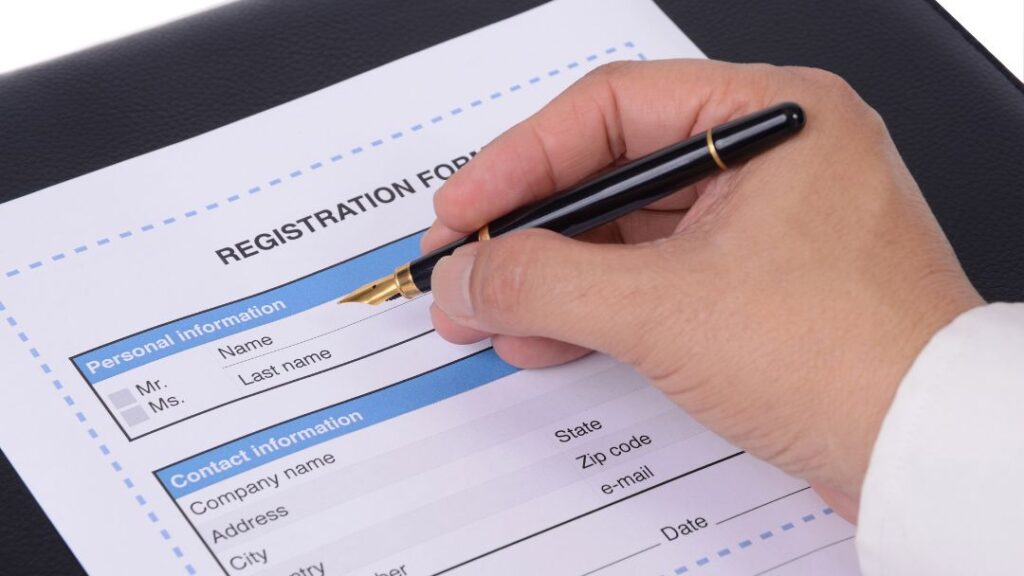How to Register a Boat Without a Title: Correct Steps and Tips
To register a boat without a title, you need to provide alternative proof of ownership to the relevant authorities. This can include a bill of sale, a notarized statement of ownership, or a registration with a boat titling state.
Registering a boat without a title requires specific documentation that establishes ownership and can vary depending on the state. You may also need to provide additional information, such as the boat’s HIN (Hull Identification Number) and any outstanding liens or mortgages.
By following the proper procedures and providing the necessary documentation, you can successfully register a boat without a title.
Understanding The Importance Of Registering Your Boat
As a boat owner, it is essential to understand the importance of registering your boat. Boat registration not only allows you to legally operate your vessel but also provides several benefits and protections for both you and your boat.
Let’s delve deeper into why boat registration is a necessary step for all boat owners.
Legal Requirements For Boat Registration
Boat registration is a legal requirement in many jurisdictions, and failing to comply with these regulations can lead to hefty fines or even legal consequences. Each state or region has specific laws governing boat registration, so it’s vital to familiarize yourself with the rules applicable to your area.
To provide an example, the United States Coast Guard (USCG) requires the registration of all motorized vessels used on federal waters or carrying federal documentation. Additionally, individual states may have their own registration requirements, depending on whether the boat is used in freshwater or saltwater, the boat’s length, and other factors.
Furthermore, it’s important to note that registration renewal is typically required annually or biennially. Failure to renew your boat’s registration can result in penalties, making it crucial to stay up to date with the required paperwork.
Exploring The Consequences Of Not Having A Boat Title
Not having a boat title can have significant consequences for boat owners. A title serves as proof of ownership, allowing you to establish legal rights over your vessel. Without a title, you may face difficulties selling or transferring ownership of your boat, hindering any potential transactions.
Moreover, a lack of boat title can result in challenges during insurance claim processes. Insurance companies often require proof of ownership, such as a title, to process claims related to theft, damage, or liability. Without this crucial documentation, you might encounter obstacles and delays in resolving insurance issues.
Additionally, registering your boat without a title could raise suspicion and scrutiny, potentially subjecting you to inspection or investigation. Authorities may question the legitimacy of the vessel, making it essential to possess the necessary documents to avoid unnecessary complications.

Overcoming Challenges When Registering A Boat Without A Title
Registering a boat without a title can present a unique set of challenges. Whether the title is lost, unavailable, or the boat is inherited or purchased without a title, navigating the registration process can be confusing and time-consuming. In this article, we will explore some common reasons for not having a boat title and discuss the steps you can take when the title is lost or unavailable. We will also delve into the process of dealing with inherited boats or boats purchased without a title, providing you with valuable insights to overcome these challenges.
Common Reasons For Not Having A Boat Title
Before diving into how to register a boat without a title, it is important to understand some of the common reasons why boat owners may find themselves without this crucial document. Below are a few scenarios that can lead to the absence of a boat title:
- The boat was purchased from a private seller who did not provide a title.
- The boat was inherited from a family member who did not have a title.
- The title was lost or destroyed due to unforeseen circumstances.
- The previous owner never transferred the title to the current owner.
These situations can create hurdles when it comes to registering your boat, but the good news is that there are steps you can take to overcome these challenges.
Steps To Take When The Title Is Lost Or Unavailable
If you find yourself without a boat title due to loss or unavailability, follow these steps to increase your chances of registering your boat successfully:
- Contact the local Department of Motor Vehicles (DMV) or the respective boating authority in your area to inquire about their specific requirements for registering a boat without a title.
- Provide any relevant documentation you have, such as a bill of sale, purchase agreement, or notarized affidavit of ownership.
- Complete the necessary application forms provided by the DMV or boating authority, ensuring you provide accurate and detailed information about the boat.
- Pay any fees associated with the registration process.
- Submit your application and supporting documents to the designated agency for review.
- Follow up with the agency to check the status of your application and address any additional requirements they may have.
By following these steps and maintaining open communication with the relevant authorities, you can increase your chances of successfully registering your boat, even without a title.
Dealing With Inherited Boats Or Boats Purchased Without A Title
If you have inherited a boat or purchased one without a title, the process of registering it can be a bit more complicated. However, there are steps you can take to ensure a smooth registration process:
- Research the specific laws and regulations regarding inherited boats or boats purchased without a title in your area to understand the requirements.
- Document your ownership by gathering any available evidence, such as a bill of sale, proof of payment, or any transfer of ownership documents.
- Consult with a maritime attorney or a boat registration specialist who can provide expert guidance throughout the process.
- Follow the steps outlined by the local DMV or boating authority for registering boats without a title, providing all the necessary documentation, and fulfilling any additional requirements.
By thoroughly understanding the regulations, documenting your ownership, and seeking professional assistance if needed, you can overcome the challenges associated with registering inherited boats or boats purchased without a title.
Gathering The Required Documentation
When it comes to registering a boat without a title, one of the key steps you need to take is gathering the required documentation. Depending on your jurisdiction, the specific requirements may vary, so it’s essential to do some research beforehand. This blog post will guide you through the process, providing valuable tips and information to help you navigate the documentation-gathering process smoothly.
Researching The Specific Requirements In Your Jurisdiction
Before getting started, it’s important to understand the specific requirements set by your jurisdiction for registering a boat without a title. Each area may have its own regulations and guidelines, so taking the time to research and familiarize yourself with the requirements is crucial. To find this information, visit the official website of your local boating agency or reach out to them directly. This ensures you have accurate and up-to-date information to proceed.
Finding Alternative Documents To Prove Ownership
If you’re unable to provide a title for your boat during the registration process, don’t panic. There are alternative documents that can be used to prove ownership. These documents may include bill of sale, manufacturer’s statement of origin, previous registration certificate, or a sworn statement of ownership. Be sure to check with your jurisdiction to determine which documents are acceptable substitutes for a title.
Tips For Obtaining Necessary Paperwork From Previous Owners
If you’ve purchased a boat without a title from a previous owner, obtaining the necessary paperwork can be challenging. However, there are a few tips that can help simplify the process. Firstly, establish clear communication with the previous owner and express your intentions to register the boat. Request any documentation they may have, such as bills of sale, previous registration certificates, or any other relevant paperwork. If the original title was lost, the previous owner may be able to provide a replacement title or assist you with the necessary steps to obtain one.
Additionally, it can be helpful to involve a notary public during the transaction. This ensures the authenticity and legality of the documents. If the previous owner is uncooperative or unable to provide the necessary paperwork, consult a legal professional to explore your options. They can guide you on the next steps to take to satisfy the registration requirements.
In conclusion, gathering the required documentation to register a boat without a title may seem daunting at first. However, with careful research, alternative documents, and effective communication with previous owners, you can navigate this process successfully. Stay organized, follow the guidelines set by your jurisdiction, and reach out for assistance when needed. Before you know it, you’ll have all the necessary paperwork to register your boat and set sail on your next adventure.
Providing Proof Of Ownership Without A Title
When it comes to registering a boat without a title, one of the key challenges is providing proof of ownership. While a title is typically the most straightforward document to establish ownership, there are alternative options available. Understanding these options and their limitations is important to ensure a smooth registration process. Additionally, seeking professional guidance can provide valuable insights to navigate this often complex procedure.
Supporting Documents That Can Be Used As Proof Of Ownership
While a title is the standard document used to prove ownership of a boat, there are alternative documents that can serve the same purpose. Here are some commonly accepted supporting documents:
- Original bill of sale: A bill of sale is a legally binding document that outlines the transfer of ownership between the buyer and seller. Ensuring that the bill of sale includes detailed information such as the vessel’s description, purchase price, and signatures of both parties is crucial.
- Manufacturer’s statement of origin: Also known as an MSO, this document is provided by the boat’s manufacturer and serves as proof of initial ownership. It contains details regarding the vessel’s make, model, and unique identification number.
- Previous registration: If the boat has been previously registered, providing proof of the previous registration can establish ownership. This may include registration cards or stickers that display the vessel’s identification number.
Understanding The Limitations And Potential Risks
While these alternative documents can be used as proof of ownership, it’s important to understand their limitations and potential risks. Some drawbacks to consider include:
- Incomplete or outdated documentation: Supporting documents may be incomplete or outdated, making it challenging to establish ownership. Ensuring that all necessary information is included and up to date is crucial.
- Potential for fraudulent documentation: Without a title, there is a higher risk of encountering fraudulent documentation. Verifying the authenticity of supporting documents is essential to prevent any legal or ownership complications.
- Varied acceptance by regulatory bodies: Different states or countries may have varying acceptance policies for alternative proof of ownership. Researching and understanding the specific requirements of the jurisdiction in which the boat will be registered is imperative.
Consultation With Professionals In The Field To Navigate The Process
Navigating the process of registering a boat without a title can be complex and confusing. Seeking consultation with professionals who specialize in maritime law or boat registration can provide guidance and ensure a smoother experience. These experts have in-depth knowledge of the requirements, regulations, and processes involved, helping boat owners avoid potential pitfalls and delays.
In conclusion, providing proof of ownership without a title is possible, albeit with certain limitations and risks. By utilizing supporting documents such as the original bill of sale, manufacturer’s statement of origin, or previous registration, boat owners can establish ownership and proceed with the registration process. Consulting with professionals in the field can provide further assistance and ensure compliance with the specific requirements of the jurisdiction. With the right approach and proper documentation, boat owners can successfully register their vessels without a title.
Completing The Boat Registration Process
If you’ve ever wondered how to register a boat without a title, you’ve come to the right place. Registering a boat can be a complicated process, especially if you don’t have the title in hand. However, with the right information and a little patience, you can successfully navigate through the steps and complete the boat registration process.
Submitting the necessary forms and documents
Before you begin the boat registration process, it’s important to gather all the necessary forms and documents. These may vary depending on your location, but typically include the following:
- Bill of Sale: If you don’t have the title, a bill of sale will serve as proof of ownership. This document should include details such as the boat’s make, model, year, and serial number, as well as the buyer and seller’s information.
- Proof of Identification: You’ll likely need to provide a valid form of identification, such as a driver’s license or passport, to verify your identity.
- Application for Vessel Registration: This form, provided by the appropriate boating agency in your state or country, will gather your personal information and details about the boat.
- Proof of Insurance: Some jurisdictions require proof of boat insurance before completing the registration process. Check your local regulations to determine if this applies to you.
- Declaration of Ownership: If the boat was previously registered, you may need a declaration of ownership form to transfer the registration into your name.
Potential fees and waiting periods for registration completion
It’s important to be aware of the potential fees and waiting periods associated with boat registration. These can vary based on your location and the specific circumstances of your registration process. Here are a few key points to keep in mind:
- Registration Fees: Most jurisdictions require a fee to complete the boat registration process. This fee may vary depending on factors such as the size and type of the boat.
- Waiting Periods: In some cases, there may be a waiting period after submitting your registration documents. This allows time for any necessary checks or verifications to be completed.
- Late Fees: If you fail to register your boat within the specified timeframe, you may be subject to additional late fees. It’s important to familiarize yourself with the registration deadlines in your area to avoid any penalties.
It’s worth noting that the boat registration process may look different depending on your location, and there may be additional requirements specific to your jurisdiction. Therefore, it’s always a good idea to consult with your local boating agency or visit their website for the most accurate and up-to-date information.
Conclusion
Registering a boat without a title may seem like a daunting task, but it is certainly possible. By following the necessary steps, such as obtaining a bill of sale, providing proof of ownership, and completing the required paperwork, you can successfully navigate through the process.
Remember to check your state’s specific regulations and seek assistance from the appropriate authorities if needed. Safe sailing!






